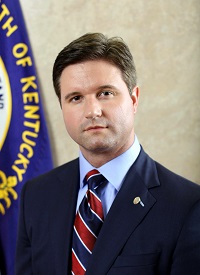
FRANKFORT – As the General Assembly readies for a return to the Capitol next week to start another legislative session, it is worth taking a look back on what has happened since the last one ended in late March.
This period is known as the interim, and it gives the House and Senate’s two dozen joint committees – plus several temporary ones – time to review the issues affecting the state in a less pressure-filled setting. In some cases, meetings are held across the state.
The Agriculture Committee, for example, traveled to the University of Kentucky’s Research and Education Center in Princeton, where the school hopes one day soon to build the Grains Center of Excellence. This multi-million dollar addition would significantly increase research and development in this sector of farming.
The Special Subcommittee on Energy also made a trip out to our part of the state, stopping by Paducah to discuss whether the commonwealth should reconsider its effective ban on nuclear energy. Officials noted this source provides nearly a fifth of the country’s electricity, while a new generation of reactors is making nuclear energy more accessible. Five are currently being built in other states, which would put the nation’s fleet over 100.
In another energy-related matter, the committee heard testimony showing Kentucky’s schools are far outpacing the national average when it comes to conservation. Between 2008 and 2014, our districts saved $48 million because of these increased efficiencies.
Not surprisingly, our legislative committees use the interim to hear progress reports on new laws. One of those, we found out, is doing even better than expected. Under it, we boosted our tax incentives for the film and television industry, which has since taken note. Just 11 sets of incentives were awarded under the old package between 2009 and 2014, but 17 alone have been green-lighted since April.
This past fall, the Judiciary Committee reviewed the progress of another new law, which on January 1st will broaden civil protective orders to include dating-violence victims and those who have been sexually assaulted or stalked. State officials have been conducting training and publicizing the law since spring, but it is too soon to gauge how many will apply.
As chair of the House Veterans, Military Affairs and Public Safety Committee, I was proud to see us cover several vital issues during the interim.
That includes hearing reports on the Year of the Woman Veteran, which the state has used to highlight the 33,000 women veterans here in Kentucky who have served our nation.
Toward the end of the summer, we heard from a World War II veteran who was having trouble convincing the federal government that he had served and, therefore, deserved benefits. This is a problem undoubtedly facing many other veterans across the country. Fortunately, thanks to work by the Kentucky Department of Veterans Affairs, this veteran had a happy ending to his story.
In our last meeting, we focused on problems facing the Kentucky State Police, which made a good case for increased trooper salaries, retiring police cruisers much sooner and building its own firing range.
Some of the other issues reviewed by our legislative committees this year include:
- The success of 2013 legislation that increased the transparency and accountability of the estimated 1,800 special districts that run our public utilities, libraries, volunteer fire departments and other quasi-government agencies;
- The steep increase in the number of craft beer breweries, which have grown six-fold over the past five years and are looking for tweaks in the law to build on those gains; and
- The growing concern that our current funding model to pay for 911 services relies too much on landlines, which have declined by a fourth since 2000 while wireless users have jumped almost 300 percent. As a result, counties are having to dip into their own general funds to keep this essential service running.
The 15 main House and Senate committees are not the only ones to meet during the interim; there are also nine others that monitor different aspects of state government, from administrative regulations and government contracts to oversight of Medicaid and the state’s tobacco settlement spending.
Several other specialty committees were formed to take in-depth looks at our tourism opportunities, the implementation of this year’s law to combat a heroin epidemic and the impact federal environmental rule changes are having on Kentucky.
With all of this information now in hand, the House and Senate will be better prepared when they convene the 2016 Regular Session at noon Eastern time on Tuesday next week. Since it will be an even-numbered year, we will meet for 60 working days and adopt a two-year budget to run state government.
I would like to hear from you during this time if you have any concerns or comments you’d like to share. You can reach me by writing to Room 351A, Capitol Annex, 702 Capitol Avenue, Frankfort, KY 40601; or you can email me at Will.Coursey@lrc.ky.gov.
To leave a message for me or for any legislator by phone, please call 800-372-7181. For those with a hearing impairment, the number is 800-896-0305.
I hope to hear from you soon.
